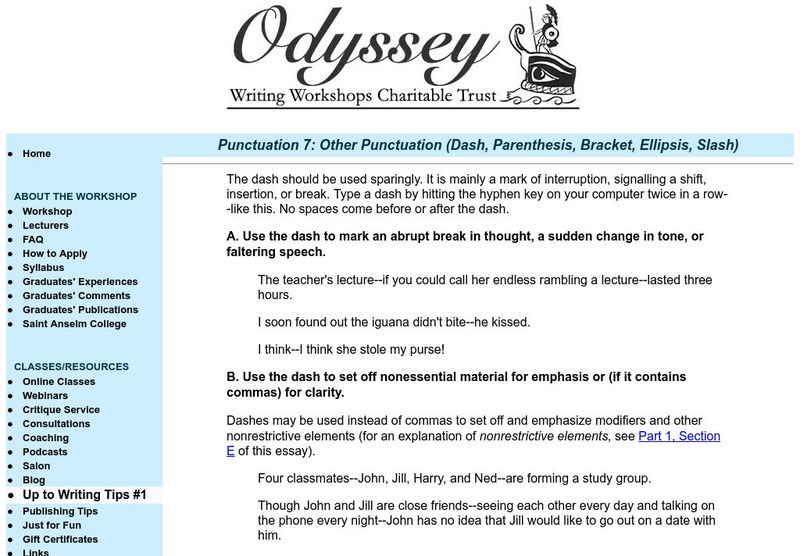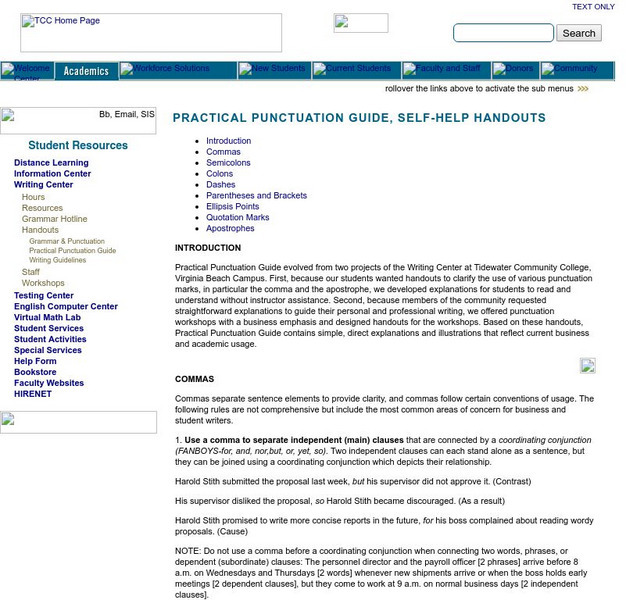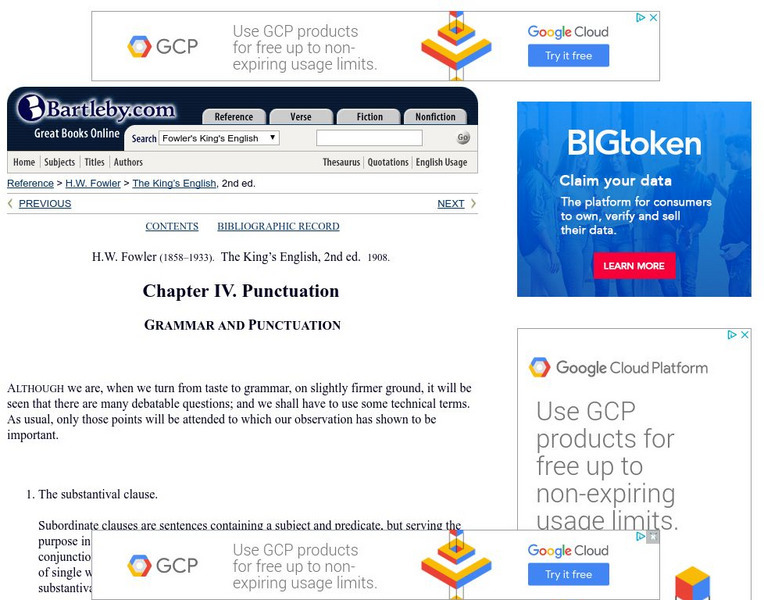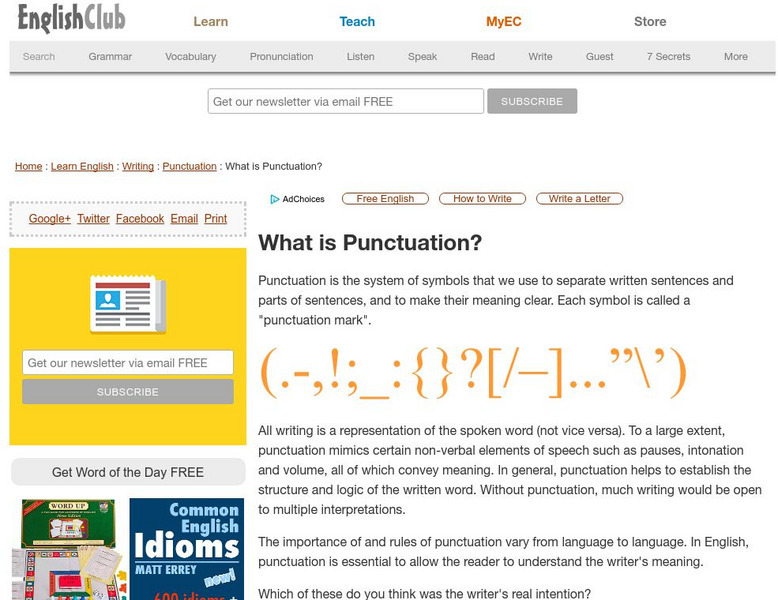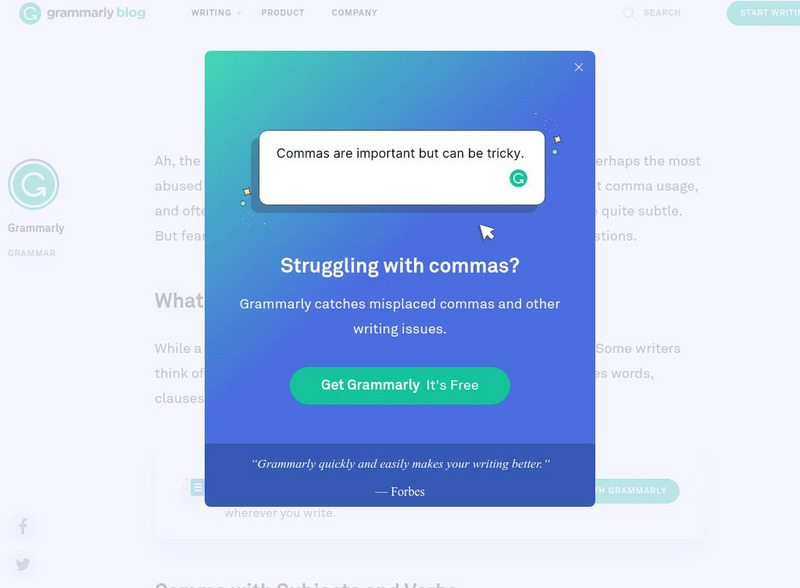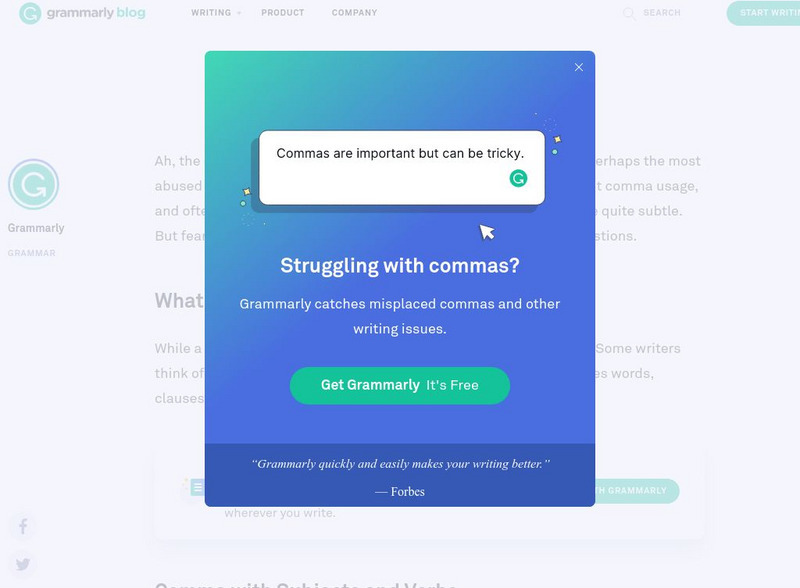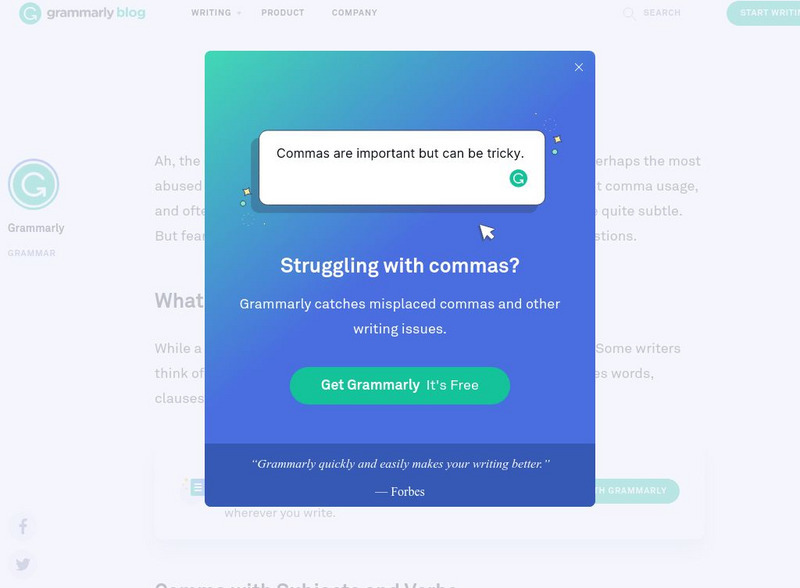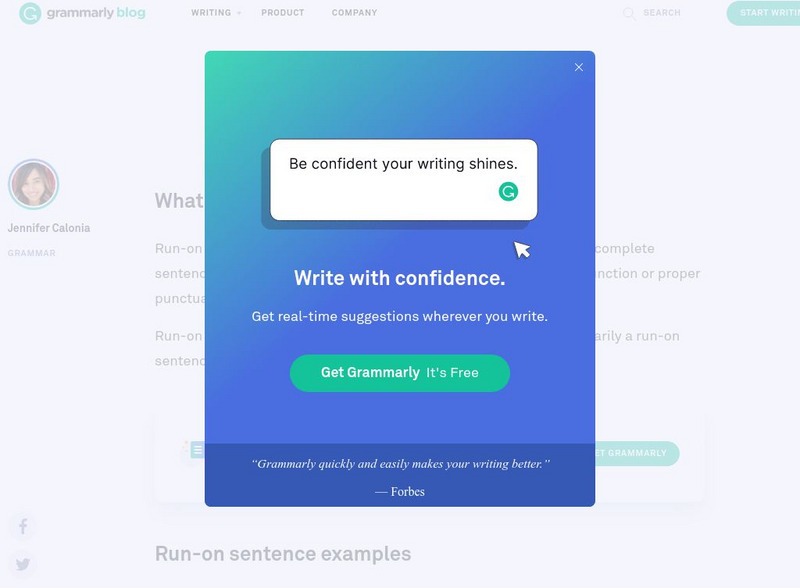Other
Illinois State University: Punctuation Made Simple
Brief tutorial on how to use some of the most confusing punctuation marks: colon, semicolon, comma, dash, and the apostrophe.
Other
Dash, Parentheses, Bracket, Ellipsis, and Slash
This site contains information on the correct use of the following types of punctuation: dash, parentheses, bracket, ellipsis, and slash. Examples are provided for each of the uses discussed.
Bartleby
Bartleby.com: The King's English: Punctuation
This is the Punctuation chapter from H.W. Fowler's The King?s English, 2nd ed. (1908), which provides the rules of use for British English punctuation in the early 20th century. Many of these rules still apply.
Bartleby
Bartleby.com: Quotation Marks
The proper use of quotation marks is explained and shown with examples in this excerpt from H.W. Fowler's The King?s English, 2nd ed. (1908), a writing primer used in the early 20th century.
Other
Tidewater Community College Writing Center: Practical Punctuation Guide
This site contains practical and useful information about the following: commas, semicolons, colons, dashes, parentheses and brackets, ellipsis points, quotation marks, and apostrophes. CCSS.ELA-Literacy.CCRA.L.2
Other
Library Online: Colon and Semicolon Punctuation in Writing
Rules and examples in list form demonstrating the proper use of both the colon and semicolon.
Grammarly
Grammarly Handbook: Punctuation
An explanation of the importance of punctuation and links to specific information on several different types of punctuation marks.
Bartleby
Bartleby.com: The King's English: Exclamation Mark Rules for Use
This site contains information on using the exclamation mark when there is no exclamation; confusion between question and exclamation; and internal questions and exclamation marks.
English Club
English Club: What Is Punctuation?
This EnglishClub tutorial reviews the purposes for punctuation. Several examples of punctuation in the context of sentences.
Grammarly
Grammarly Blog: Anymore vs. Any More
This page explains the use of "anymore" in informal writing, but in formal writing and anywhere else, "any more" is preferable. Examples are provided.
Grammarly
Grammarly Blog: Interjections
An explanation of the use of interjections and links to specific interjection usage rules.
Grammarly
Grammarly Blog: Apostrophe Rules
This page focuses on the rules for the uses and misuses of the apostrophe including contractions and omissions, possessive nouns, possessive pronouns, how to write joint possession, plurals, apostrophes with surrounding punctuation, and...
Grammarly
Grammarly Blog: What Is a Comma?
This page explains that a comma is a "soft stop" in writing and provides examples of its use.
Grammarly
Grammarly Blog: When to Use Commas and When Not
This page focuses on the uses and misuses of commas. It provides examples of comma uses and explains when the commas are unnecessary.
Grammarly
Grammarly Blog: Comma Within a Comparison
This page focuses on the misuse of a comma by separating the two items being compared. No comma is needed before the conjunction in a comparison unless it includes a non-restrictive clause. Examples of both are provided.
Grammarly
Grammarly Blog: Missing Comma Before a Question Tag
Rules and examples for using commas when writing a question tag at the end of a sentence.
Grammarly
Grammarly Blog: Comma Emphasizing Contrasting Ideas
This page focuses on the use of commas around contrasting ideas to emphasize that the subject has been modified; examples are provided. Signal words for contrasting ideas include not, unlike and never.
Grammarly
Grammarly Blog: Run on Sentences
Rules and examples for using commas when writing a complex sentence.
Grammarly
Grammarly Blog: Correlative Conjunctions
This Grammarly Handbook resource clarifies how to use correlative conjunctions correctly in sentences. Numerous examples are provided in this resource.
Grammarly
Grammarly Blog: Comma Between Correlative Conjunction Sets
This page provides the rules and exceptions for the use of commas when using corratative conjuction sets such as either or, or neither nor, or not only but also. No commas are needed between them unless the comma is needed for other...
Grammarly
Grammarly Blog: Italics and Underlining
An explanation of the uses of italics and underlining. Links to additional information are provided.
Grammarly
Grammarly Blog: Italics and Underlining: Words, Letters, Numbers Gram. Rules
An explanation and examples underlining/italicizing words, letters, and numbers when they refer to themselves.
Grammarly
Grammarly Blog: Hyphen
An explanation of the use of a hyphen and links to specific hyphen usage rules.
Grammarly
Grammarly Blog: What Is a Hyphen?
This page explains what hyphens are, what they can do, and provides examples of their uses.



